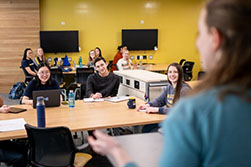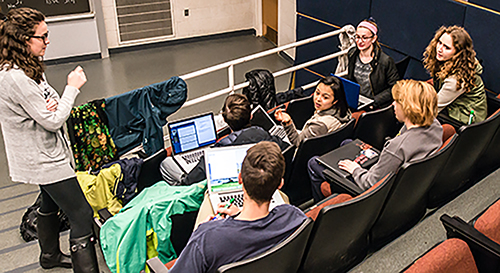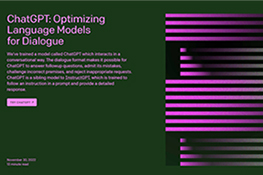What can and can’t I say to my students regarding the upcoming US elections? How, if at all, can I encourage my students to vote? Is the classroom a free speech zone? What can I do if a student won’t wear a mask during in-person classes? How can I protect my own and students’ privacy in the remote classroom?
These are just a few of the questions with which U-M instructors have been grappling this fall as they prepare to teach in the midst of the upcoming U.S. Presidential election, the ongoing impact of the COVID-19 pandemic, the labor movements on campus, and the continued activism and protests against racism and police violence. A recent conversation between Dr. Angela Dillard, Richard A. Meisler Collegiate Professor of Afroamerican & African Studies, and U-M Associate General Counsel Jack Bernard offers an excellent resource for instructors on how to navigate their approach to these issues. It includes insights into topics ranging from classroom disruption and management, to student and instructor privacy, and free speech considerations in and beyond the classroom. The kinds of questions instructors are asking often do not have easy or straightforward answers, and Dillard and Bernard expertly highlight the complex and nuanced nature of these kinds of classroom concerns.
Here is a quick reference list, including timestamps, of where some of the key questions relevant to instructors this fall are addressed in the video:
Reference List
- Top 3 things to know about university policy when teaching political topics (timestamp: 21:05)
- What makes the diag different from the classroom in terms of free speech? (timestamp: 37:54)
- How can I address concerns about & set rules for student filming? (timestamp: 50:35 & 1:02:10)
- What can be done if someone does not want to wear a mask? (timestamp: 1:05:45)
- What would make teaching in this moment exciting? (timestamp: 1:10:55)
- How might I handle the lack of agreement on evidence in the course? (timestamp: 1:19:00)
- Can I advocate for students to vote (Big 10 Voting Challenge)? (timestamp: 1:24:40)
The conversation was a kick-off event for Ready, Set, Teach: Communities of Practice to Enhance Pedagogy, Facilitate Dialogue, and Promote Civic Engagement.
Ready, Set, Teach is one of a number of university resources that highlight the upcoming election as well as other significant moments around civic engagement through the Debate and Democracy Theme Semester. It includes a set of communities of practice sponsored by The Center for Research on Learning and Teaching (CRLT), The National Center for Institutional Diversity (NCID), and the Ginsberg Center for Community Service and Learning. There are three communities, “Navigating policy and politics in the classroom;” “Facilitating high stakes discussions;” and “Managing conflict and disagreement in the classroom,” and each is designed to help instructors develop skills and confidence in their ability to manage discussions and dynamics around charged topics in the classroom.
We also invite you to review these additional resources from CRLT and our partners at The Ginsberg Center and the Program on Intergroup Relations that you may find useful as you teach this Fall:
The Center for Research on Learning & Teaching
Responding to Difficult Moments: A List of Resources
Guidelines for Discussing Difficult or High-Stakes Topics
Facilitating Challenging Conversations in Your Classes (CRLT Blog Post)
Teaching & Learning in a Tense Election Season (CRLT Blog Post)
The Ginsberg Center
Supporting Students' Civic Engagement
Tools for Supporting Civic Engagement
The Program on Intergroup Relations
IGR Insight Handouts
Information and Technology Services
Recording Class Activities: (Some) Rules of the Road
In addition to these online resources, CRLT consultants are also available to consult with individual instructors about effective ways to raise or respond to difficult or charged conversations in your classrooms.
- Log in to post comments
- 991 views








